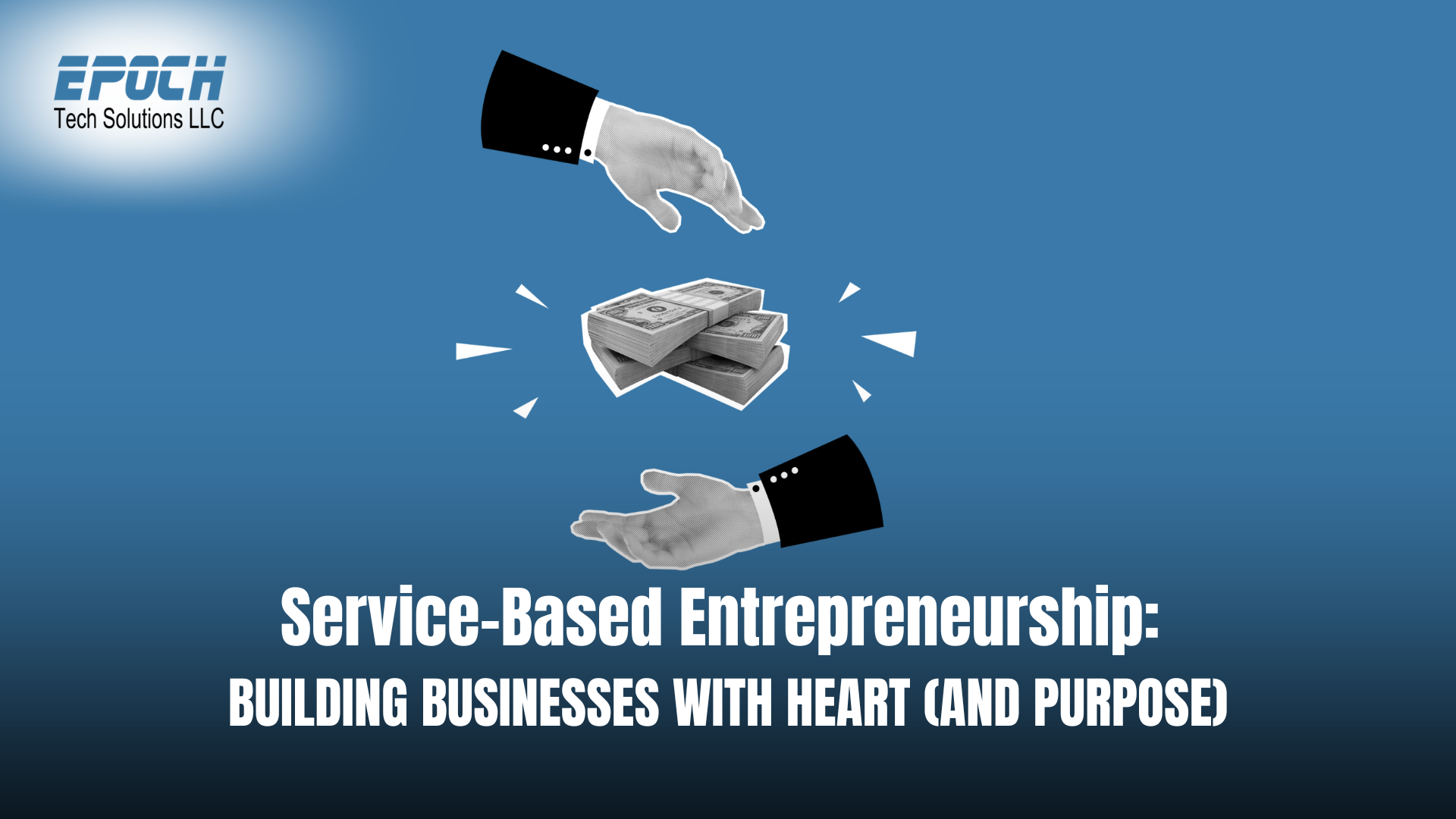
Picture this: you’re at a networking event. Someone asks, “So, what do you do?”
Most entrepreneurs fire back with, “I run a business,” followed by a list of services and maybe a clever tagline.
But the service-based entrepreneur answers differently. They might say, “I help small businesses find their financial footing,” or “I make busy parents’ lives easier.” Notice the shift? One approach sells. The other serves.
And here’s the kicker: the latter tends to last longer.
Service-based entrepreneurship isn’t about squeezing profit out of customers; it’s about solving their problems so well that profit becomes the natural side effect.
The best businesses rarely begin with “I want to sell X.” They start with a question: Who needs help, and how can I make their lives better? That “why” becomes the compass for everything that follows.
Not all customers are created equal. A service-first mindset means identifying your ideal client and tailoring everything toward their challenges. When you go deep on serving a specific group, your business stops feeling like “work” and starts feeling like purpose.
Here’s the part that often gets overlooked: serving others changes you. It builds empathy. It teaches humility. It gives you resilience when things get messy (because they will). Service-based entrepreneurship isn’t just a business model; it’s character training disguised as cash flow.
If it helps people, it’s a service business waiting to happen.
For some, service isn’t just about customer happiness; it’s about social change. This is where social entrepreneurship steps in. Think less “sell a product” and more “change the world while staying profitable.”
The formula looks like this:
And it works. Patagonia proves it. TOMS Shoes proved it. Muhammad Yunus literally won a Nobel Prize for it.
He didn’t just build a bank. He built an escape hatch from poverty, one small, interest-free loan at a time. Millions of women in rural areas started businesses because of his vision.
Buy a pair, give a pair. Simple, powerful, world-changing. TOMS may have evolved, but it sparked a movement of brands tying growth directly to social good.
Instead of just selling jackets, Patagonia sells values. Protecting the Earth is more than a mission statement; it’s in their supply chains, their activism, their DNA. Customers don’t just buy gear; they buy into a cause.
Money matters. But meaning lasts. Service-based entrepreneurs measure success not only by revenue charts but by the ripple effect they leave behind: happier clients, stronger communities, and healthier ecosystems.
And if you’re a business owner, manager, or leader, the question isn’t whether you should integrate service into your strategy. It’s how fast.
At the end of the day, customers remember how you helped, not just what you sold. Service-first businesses grow stronger, attract loyal fans, and, bonus, give you something better than a paycheck: a purpose.
Ready to build a business that balances profit with purpose?
Contact Epoch Tech Solutions today for a free consultation.
Hashtags:
#community #epochtech